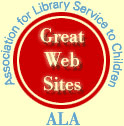
CRLS Research Guide
|
|
The Subtopic Method
Tip Sheet 8bAsk these questions:
What is it?
How do I do it?
The Subtopic Method
You could choose to focus a topic by one, or even more than one, limiting subtopic. We'll use World War II as an example, a big topic that needs focusing. The limiting subtopics we'll look at are; chronological, geographical, biographical, event-based and technological. You may think of others that could apply to your topic.
Focusing Chronologically
World War two lasted from 1939 to 1945. In those 6 years much took place to change the lives of millions of people and to redefine the boundaries of many countries. You could pick a particularly crucial year, month, week, or even a day, like D-Day, the Allied invasion of Europe, and have much to write about. The library has reference books that detail the war day by day. Ask a librarian.
Focusing Geographically
World War II affected almost every country in the world, even if fighting did not take place there. You could focus on the war in one geographical region, such as Europe or Asia where most of the actual fighting took place, or one country such as India and how, as a British Colony, it was affected. You could even pick a country to which you have a connection, by birth or heritage, and find out how it was affected by the war. It may have affected your own family in some way.
Focusing Biographically
You may choose to look at the war through the focus of a particular person, or group of persons. You may look at how the war was experienced by an African-American or Japanese-American soldier, both of whom faced discrimination for different reasons.
What about from the experience of an American President, or a German or Italian dictator, a Japanese General?
How about the mother of an American soldier, a German prisoner of war, an American nurse in a South Pacific naval base, an prisoner in a Japanese-American internment camp, or a survivor of a Nazi concentration camp?
This an example of a history research project, but you will be able to find a biographical focus in other subject areas as well. Just try to find how your subject affects or was influenced by human beings.
Focusing on an Event
You may want to look in depth at a particular event. D-day would also fall under this category. So would the atomic bombing of Hiroshima and Nagasaki, the Battle of the Bulge (or any other major battle that influenced the flow of the war), the signing of a particular peace treaty, or the forming of an alliance. If you use this focus, you will want to look at the cause of the event and the effect it had, in addition to the event itself.
Focusing Technologically
If you are interested in science, technology, machines, or human ingenuity in general, you may choose this criteria. For World War II you could focus on a particular vehicle like German U-boats, submarines, B-52 bombers, Panzer tanks. You could look at the science of the atomic bomb. Or you could look at the coding used to relay secret messages and the methods of code-breaking that allowed strategic information to leak to the Allies (and incidentally gave rise to the development of modern computers). You may even be interested in the ingenious ways prisoners attempted (and sometimes succeeded) in breaking out of prisoner of war or concentration camps.



